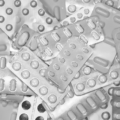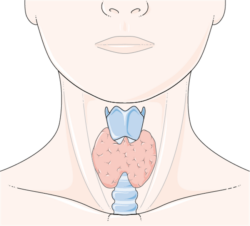My health issues began in June of 2017. Prior to 2017, I considered myself reasonably healthy and active, but now, I can barely function. My health issues include being continuously weak, shaky, dizzy and off balance. I have pain in my ankles and pelvis. My ankles have become extremely weak and painful. I cannot wear high heels or exercise except in the pool because my ankles are so weak they will not support my weight. I can’t go up on my tiptoes or ride a stationary bike or I get pin pricks up and down my body. If I contract my muscles, my left foot gets all weak and shaky and it takes forever to stop. I cannot sit on a low toilet seat or wear tight pants because my hip and pelvic bones hurt. It is too painful to get a massage. When I tell this to people or doctors, they look at me like I am nuts. In addition to all of this, I have developed severely low aldosterone but since my cortisol levels are almost normal, I do not fit the profile for Addison ’s disease. Whether this began before or after the other symptoms is not clear. My thyroid is also not functioning well and I have been diagnosed with Hashimoto’s disease as well. I have been to over 50 doctors, had every test imaginable and still have no answers. I am writing this so that perhaps someone can offer some help.
Frozen Shoulder and Prednisone Unleashed My Cascade Into Illness
This all began in June of 2017 when I developed a frozen shoulder and was given prednisone. The doctor told me he could not do the surgery unless I took prednisone. I believe this is what caused my problems but all the doctors said no. They have people on prednisone for years. A little before June of 2017, I was also having sciatica issues and the docs gave me a Medrol pack to relieve the pain and inflammation. I probably took 4 or 5 Medrol packs over a 2 year period. I went to a chiropractor who then stretched my right leg so far to the left, I think he gave me a swollen tendon. When all these things started happening, all of a sudden I could not stretch or get massages or do physical therapy, as I would just get worse and I would get pin pricks up and down my spine and in my glutes, but I was still strong at that point.
A few weeks later, I was walking with my husband and I stepped on a nut and twisted my ankle. Then, in the doctor’s office, I fell again and hurt the other foot. My ankles proceeded to get weaker and weaker and I could not figure out why they would not heal. I did some physical therapy but they never got better. I was still going on bike rides with my husband and it was hard to land or stop because of my foot which was very weak and shaky like the nerves are weak. I fell off my bike a few times and then hit my right hip which has never healed and I have lost range of motion in my right hip as I cannot raise my leg very high to put on my shoe.
After I injured my ankle, I woke up one morning weak, shaky, dizzy and off balance. I could not eat as I had a motility issue, where I was full as soon as I took a bite. I lost a ton of weight which was great but I was very sickly and could not function. I managed to fix my stomach as I increased my thyroid meds and took something called Iberogast which really saved me. It worked and I was able to eat normally again.
Adrenal Fatigue?
I did my research mostly on adrenal fatigue as I have Hashimoto’s. I was convinced I had an adrenal problem. I did saliva tests and my cortisol was low normal in the morning at 7.9 but high the rest of the day so most people did not think I had adrenal fatigue. I took adrenal supplements anyways. They helped a little bit not much. I asked my doc for hydrocortisone and of course he gave it to me. I started to take it and felt better, however, my cortisol was not low. I started to get very hyper even though it made me feel better but I could not relax. I could not wait to get off of it. I finally weaned off and felt weak again. So I started on my adrenal supplement with licorice and started feeling good but still was not totally well. I believe it was the hydrocortisone that worked as it gave my adrenals a break and then when I took the licorice this time, it worked and I started to get better. I could even go on vacation.
Low Vitamin C?
Then, because I was still so overly weak in the morning, I went back to the doctor to go over blood work. My vitamin C was low out of range and I was taking about 4000mg per day of liposomal C, so this did not make sense. We thought, aha! That is the culprit as Vitamin C is supposed to be the number 1 thing for adrenal fatigue. So we did an IV of Vitamin C of 25,000mg with some magnesium and low and behold I got so weak and sick that I got home and felt so lightheaded that I needed to go the hospital. I stayed home and went to bed and drank a ton of water, however, people on the Vitamin C Facebook page told me to keep taking more vitamin C to get rid of the toxins. So I took some more, but it did not help. I got so weak and lightheaded that it scared me. I tried to repeat what I had done in the past but I have never recovered and that was over one year ago so that would be September 2019.
Endless Tests To Find That I Have No Aldosterone
Since becoming ill and learning that I have low aldosterone, I have tried everything under the sun to get better. I have had all kinds of tests such as Lyme, mold, heavy metals, hair tests, saliva tests, macronutrient tests, OAT test, autoimmune testing, you name it I have done it. I have been to 50 doctors and the Mayo clinic and they put me in the fibromyalgia bucket, of course.
I take adrenal supplements to this day. All the docs want me to take Fludrocortisone (florinef) for my low aldosterone. I try not to take it. I went to an adrenal doctor that gave me licorice on top of florinef and it tanked my potassium. I got weaker, shaky, dizzy and off balance. So I got off florinef and licorice and started taking prescription potassium. I got more stable but I am still weak, shaky, dizzy, and off balance.
My left ankle is so weak and shaky, that I cannot walk in bare feet or ride my bike even with a sneaker on. I have taken alpha lipoic acid (ALA) in the past and it helped a little but not much. It is worse than ever now. In the midst of all this my doctor put me on an estrogen pill instead of cream. I am 5”10” and was always a fashionable at 135 pounds, but with the estrogen pill I gained weight and I am now 175. I eat healthy to lose weight but cannot. I have since come off the pill and am using the HRT creams including Estrogen, Progesterone and Testosterone, but cannot lose weight as my body is so weak. I also have not been able to wear high heels, ride my bike, or exercise since all this happened, which is devastating.
Trying Thyroid Protocols
In August of 2020, I decided to do Paul Robinson’s protocol of the CT3M method for thyroid and adrenal. I read his books and tried the protocol of T3 only, as opposed to natural desiccated thyroid since my reverse T3 was 19 and too high according to Stop The Thyroid Madness. I could not fall asleep at night so this seemed like the right thing to do. I got up to 25mcg of T3 for the CT3M dose and then 12.5 at 11:00am and 12.5 at 3:30pm over a couple of months’ time period. I was hoping this would help the low aldosterone but it did not. It did make me a little less weak and shaky in the morning and I also could fall asleep without a problem, so this was an improvement.
I also worked on my iron to get my ferritin up. I had joined the Iron Protocol Page and they say that your ferritin should be 100 to 125 for your thyroid to work properly and in order for that to happen your iron will go high. So I am currently taking 65mg of Novaferrum to get my ferritin up and keep it there. I also take Ancestral Supplements Beef Liver and Spleen to help increase it also. But the T3 only protocol makes my heart race too much and always gives me a high heart rate after breakfast like 96 to 106, which I don’t like and it seems to happen more in the morning after breakfast from the CT3m dose. It has something to do with glucose and the CT3m dose. T3 only does something with glucose but I don’t know what.
I am now transitioning back to NP Thyroid (Natural Desiccated Thyroid) now that my Reverse T3 has lowered and I gave T3 only treatment a good try. I am just too uncomfortable with it and Paul Robinson says we should only use this as a last resort. I have worked tirelessly to get my Hashimoto’s antibodies down with Duanwood Reishi Mushroom and it worked. My antibodies were in the thousands and now they are 10 and 60 out of range instead of 1200. However, I don’t feel any better at all. I have since discontinued Duanwood Reishi, as I believe I have low blood sugar issues (at least it feels like that but it could be the low aldosterone). I have had my insulin checked and glucose and it all came back normal. I did a glucose tolerance test, which was also normal, but it still feels like low blood sugar to me regardless of these results. Again though, these symptoms could be related to my low aldosterone. My renin is low also but I recently started a desiccated kidney supplement with the DAO enzyme for itching and then my renin came back in range-still low but at least in range.
Low Iodine, B2 and B12 Deficiencies and Another Protocol
After joining the T3 only Facebook page, I heard about the B12 Protocol with Dr. GRJ. I started the protocol but continue to get worse. I was able to take my B complex before the protocol but I just tried it recently and now I cannot tolerate my B complex and before I was able to. Before I started the protocol, I did the famous OATS test and Dr. GRJ confirmed that I had a B2 deficiency which begats the B12 deficiency. This made sense to me since I cannot stretch any part of my body without getting a setback of pin pricks up and down my spine, glutes hips and feet. All the lower extremities. I also had blood work done that showed I was iodine deficient. So my blood serum of iodine was 17 Low and the range started at 52 so very deficient. I am very confused with iodine as when I tried to take Lugol’s iodine about 12mg a few years back, I got much worse, more dizzy and off balance. Starting Dr. GRJ B12 protocol, I am currently on 150mcg of potassium iodide and I seem to tolerate that fine, however, my iodine is coming up slowly. The last blood test showed 11 Low instead of 17 Low. I did try to increase it to 225mcg but got more weak and blurred vision so I am staying at 150mcg for now. I proceeded to take selenite and got up to 200mcg but I was just getting so weak I had to stop it for now. I am trying to go back to ¼ capsule and stay there but we shall see.
Possible Thiamine Connection?
My friend invited me to join the Understanding Mitochondria Nutrients page so I did. That is where I learned about thiamine. I decided to try the allithiamine and I made it up to 150mg while still on T3 only. One morning I got up and took some licorice as I was so weak and it was like the allithiamine made the licorice work better. I almost felt normal. However, this did not last. I took my B complex which I guess was a mistake after starting Dr. GRJ B 12 protocol. It made me so overly weak and shaky that I regretted taking it and I am still in that state. This happened a few weeks ago, so I guess it gave me a major setback. I could not tolerate it and you are not supposed to do that anyway in the protocol. I did it because my homocysteine went high after stopping the B complex. This is the BIG ENIGMA that I don’t understand. If I am b12 deficient and am not absorbing B vitamins, can someone tell me why my B complex worked at keeping my homocysteine in range and as soon as I stopped it, my homocysteine went up?? This happened to me several years ago and when I took the B vitamins, it went back down as I have experience with this. Now, after starting the B12 protocol, I cannot take my B complex as I will get even worse. Dr GRJ looked at my hair test and told me I was mildly deficient in molybdenum even though it was in the middle of the range. Not sure I understand, that but I accept it. My hair levels of copper showed very low but my blood serum copper was in range so not sure what to do about that. I imagine it might be better now due to taking Desiccated Beef Liver.
I noticed since taking the allithiamine my blood pressure seems to get lower but I am pushing through still at 250mg. I don’t feel any better and I was on it for about one week then off for a few days and now back on it for the last few weeks. I don’t feel any improvement in my condition of weak, shaky, dizzy and off balance. My hemocrit runs high out of range which means I am dehydrated from the low aldosterone but drinking salt water does not even help. I did however get improvement in all the itching I have had to endure for the last 4 years, it has been a nightmare. Between the desiccated Beef Kidney and the allithiamine all my itch problems are gone. I can now take larger doses of progesterone without itching. I can eat apples and banana and watermelon without itching. You don’t know what a huge relief this is to be suffering with this on top of all my other conditions.
Still Not Improving
I am so weak from the B complex that I took, that now I don’t know how to proceed unless it is the allithiamine backfiring on me, not sure. I am exhausted from researching and going to doctors for no help and just watching my savings account just drain out from under me. I feel completely hopeless, especially since I was always so healthy and had a vibrant career and beautiful life with my husband. This happened to me at 59 years young and I am ow 63. I basically stay at home, never go out, can’t exercise and life is wasting away. My figure has deteriorated as I cannot lose weight and my depression would be overwhelming, but I am able to manage it with the Lion’s Mane Mushroom, which has saved me from severe depression and taking anti-depressants.
I was hopeful that allithiamine would be my answer but I don’t feel any less weak. Maybe it will take longer but I am concerned about my low blood pressure with it. When I google it, it said people take it to lower blood pressure. I should mention though, the allithiamine has helped with my itching. Some supplements would cause itching, like magnesium and alpha lipoic acid. but the allithiamine has helped that. I would also get itchy from certain fruits like bananas, watermelon, and the red skin from the apples. Anything red makes me itchy. When I was on the allithiamine for a few days I could eat the banana without getting itchy. My blood pressure has always been on the low side for me like 95/65. I am using sea salt now and yesterday my blood pressure went up to 120/72 so that was better.
So, finally here I am today. My symptoms are: weak, shaky, dizzy and off balance. I cannot bend over to pick up my cat or pick up things off the floor when I drop things, I cannot wear high heels, I cannot exercise except in the pool, I cannot sit on a low toilet seat, I cannot wear tight pants or hip and pelvic bones hurt, I cannot wear a one piece bathing suit as the tightness hurts my hips and pelvic bones, I can’t get a massage to feel better, I can’t be intimate with my husband in a normal way but we manage somehow, I can’t go up on my tiptoes or my left foot gets much worse, I can’t ride a stationary bike or my left foot gets worse. If I do these things I get pin pricks up and down my body or I get contracting muscles or my left foot gets all weak and shaky and it takes forever to stop. When I tell this to people or doctors, they look at me like I am nuts. They think I am making it up and I am not. When I think about what I say to people, I would not believe me. Doctors tell me I need physical therapy and they don’t believe me when I tell them I cannot do it. They cannot fathom it as my story seems so unreal. It seems unreal to me and my husband. We cannot believe it happened.
Additional Notes
I guess I should mention that I was a “blue baby” or and “RH” baby and almost died at birth. I had a blood transfusion, which saved me, so I survived and lived a pretty normal life. I could never drink alcohol when all my friends could, as the sulfites would make me sick. When I went to Italy, however, I could drink the wine, as there were no sulfites, which was very surprising to me.
Diet and Supplements
I eat healthy to lose weight but nothing works.
- Breakfast: antibiotic free egg on gluten free toast and Irish steel cut oatmeal with almond and honey or stevia. No coffee.
- Lunch and Dinner: Basically grass fed chicken or beef with salad, sprouts, carrots, broccoli and sweet potato or baked potato or a combo thereof and different veggies and salads. How many ounces of chicken or beef, we need to determine protein consumption per day. Your tests show that you are low in protein, and you are likely low in fatty acids. The
- Snacks: combo of fruit like honeydew melon or pears and a piece of animal protein or lentil beans.
Supplements and Medications
My supplements vary but here is what I am taking right now:
- Lion’s Mane Mushroom-5 caps per day
- Adrenal Cortex by Thorne- 2 to 3 caps in the morning depending upon how I feel
- L Tyrosine -2 caps per day –
- Potassium Iodide- 150mcg once per day – why?
- Rehmannia Six Combination from Dragon Herbs- 3 caps x 3-have to take this due to severe weakness
- Echinaccea-2 caps per day-seems to help with weakness for some reason-I read they give it to people with chronic fatigue
- Ubiquinol – 100mg x 2
- Digestive Enzymes- 2 at each meal
- ADK -1 capsule per day-someone told me once that too much vitamin D can lower aldosterone but I cannot find that anywhere.
- Allithiamine 150mg in 3 divided doses
- Pantethine-tried it recently and I used to be fine but ever since Greg’s protocol I think it is making me weaker so I stopped it.
- Salmon collagen-2 caps per day
- Dhea-5mg -still on the fence-thought it made me weaker but will try again as my dhea is super low
- Probiota HistamineX Probiotics by Seeking Health-2 caps x 2
- Licorice Root – as needed depending on how weak I am
- Ancestral Supplements-Desiccated Beef Liver-6 caps per day
- Ancestral Supplements-Bone Marrow-6 caps per day
- Ancestral Supplements-Beef Kidney-6 caps per day
- Ancestral Supplements Spleen- on occasion or as needed
- Ancestral Supplement Adrenal-just bought waiting to try it to see if it helps
- Novaferrum Liquid Iron-1/2 teaspoon or 65mg once in the morning
- Nordic Naturals fish oil-as needed for pain
- Plant based Vitamin C-3000 mg per day in divided doses
- Magnesium Bysglycinate-1 capsule of 250mg at night
- Selenite-200mg-was taking but have stopped right now-might start up with ¼ cap soon
- Molybdate-cannot take yet
- Low Dose Naltrexone – 1mg during day and 4.5 at night for 2.5 years
- NP thyroid -1 grain x2
- T3 -25mcg at 3:00am-weaning off of this to go to all NP Thyroid and small doses of T3
- T3- 5mcg with morning dose of NP thyroid
- Fludrocortisone-take as needed
- Bioidentical hormones for ~10 years
- Estrogen-2mg x 2
- Progesterone cream-200mg per ML- ½ ml x 2
- Testosterone-2/5 mg x 2
- Xanax prescribed in 2019, took it for one year. Weaned off in December 2020.
We Need Your Help
More people than ever are reading Hormones Matter, a testament to the need for independent voices in health and medicine. We are not funded and accept limited advertising. Unlike many health sites, we don’t force you to purchase a subscription. We believe health information should be open to all. If you read Hormones Matter, like it, please help support it. Contribute now.










